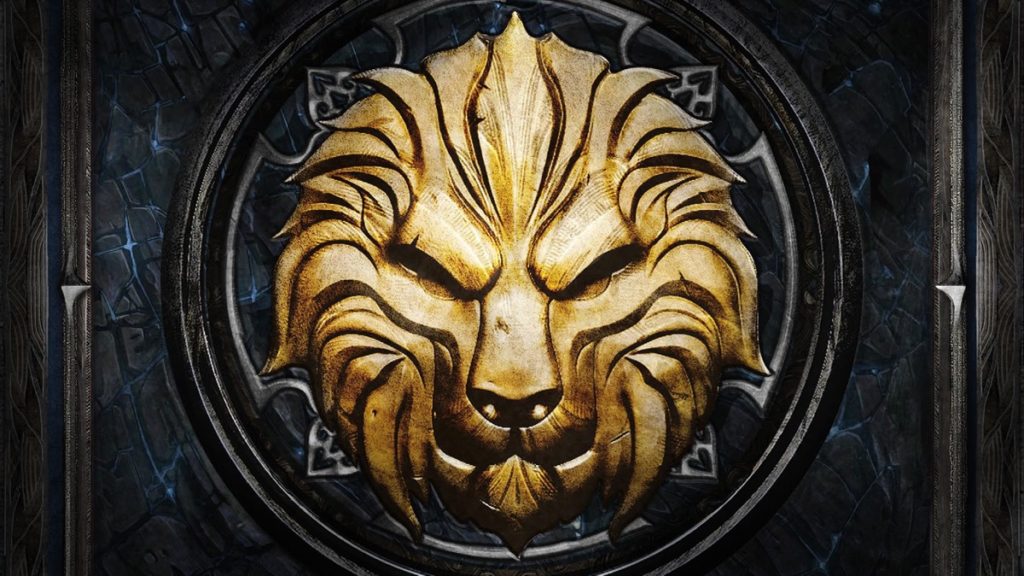
A lone mogu, clothed in ornate, precisely tailored robes, stepped into the large tent and coldly eyed the slaves scurrying around the odd collection of polished, hollow white tubes. With a loud, scornful voice, he pronounced, “You told Warlord Gurthan your weapons would be ready by now. He is disappointed in your failure.”
The sixteen slaves—mostly pandaren, though there were a few jinyu—went still with fear. Far in the back of the tent, a bulky figure slowly stood up, face shrouded in shadow. He leaned forward. The edge of his jaw caught the glow of a flickering brazier. Despite the hostile words from the visitor, the larger mogu’s expression was forbiddingly calm.
“If Warlord Gurthan were disappointed in me, he would have told me himself, Hixin,” said Taskmaster Xuexing.
“Perhaps you are unaware of recent events. The mantid are attacking,” Hixin said blandly, as though it were possible to miss the horrific sound of the fighting to the west. “Warlord Gurthan has more important matters to attend to than a delinquent arcanist and the misuse of a few slaves.”
Delinquent? Xuexing kept a firm grasp on his temper. Hixin was by far the slipperiest of Warlord Gurthan’s advisors. He never provoked someone without a reason. No doubt he wished to carry tales of Xuexing’s rage back to the warlord. If he can’t respond calmly even to simple criticism, Warlord, Hixin would undoubtedly say, can he really be trusted with critical duties?
It was no secret that Xuexing had the warlord’s confidence in almost all areas of the arcane. Even the Zandalari sought his counsel and advice. Hixin would need to discredit him before supplanting him. He seeks to ascend by stepping on my head.
“The huatang will be ready when it is ready,” Xuexing said. “And when it’s ready, I’ll tell Warlord Gurthan myself.”
“Should I tell him to expect a working weapon in days? Weeks? Months? The insects will not wait,” Hixin said in the same bland, political voice. He ran his finger absently along the rim of a strange, ornate urn sitting on a table next to him.
“Tell him whatever you like,” Xuexing said.
“I suppose I have to inform the warlord you don’t have an answer.”
“Do not test me, advisor.”
Go together. Swarm the Wall. The empress’s words filled their minds. She gave them purpose. Her desires were their desires, and they did not hesitate to obey.
Without her, the mantid were nothing.
The strong will return. The weak will not, she said.
Kil’ruk and dozens of other flyers rose into the air and went east again. It was their third trip to the Wall, or perhaps their fourth. Kil’ruk hadn’t really kept count. All he cared about was her voice, urging him onward. He had craved battle from his first moment of life. His instincts took care of the rest. His antennae twitched restlessly. His forelegs remained tucked up beneath his abdomen, settling easily against his carapace. Even the act of keeping his four transparent wings buzzing together behind his back was as natural as breathing.
The lesser creatures must die, she sang to them all. Sweep them away.
From so high in the air, the ground itself seemed to writhe with her wrath. Thousands upon thousands of mantid pushed east without thought toward the lesser creatures and their pathetic obstacle. Even though their Wall jutted into the sky, the empress had ordered it to fall. So it would.
They call it the Serpent’s Spine, the empress had sneered. Break it.
On the ground, the swarmborn charged the Wall, attempting to climb its sheer face. Already piles of broken carapaces were growing at the base of the Spine. The climb was exhausting and dangerous, and the few mantid who managed to reach the top found themselves alone against scores of defenders. They did not survive long.
Kil’ruk and the other flyers hovered high above the Wall’s battlements, far out of range of any archers. Each of the mantid carried a net filled to bursting with strange nuggets that leaked wisps of vile smoke. An ambersmith with a missing eye had called them rounds. “Decorate their heads with these,” he had hissed while shoving nets into his forelegs’ grasp.




